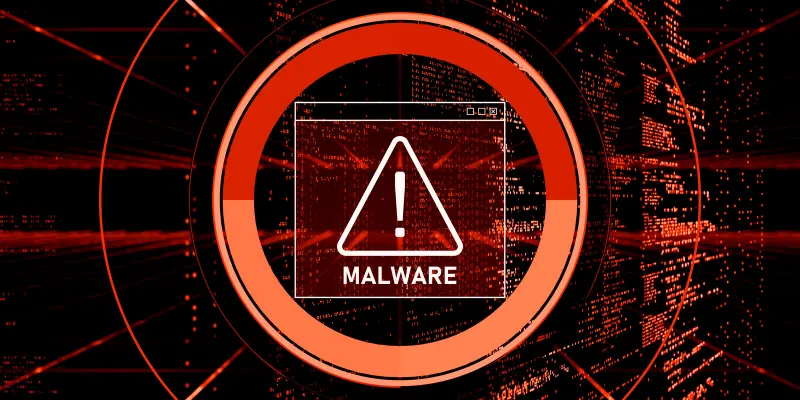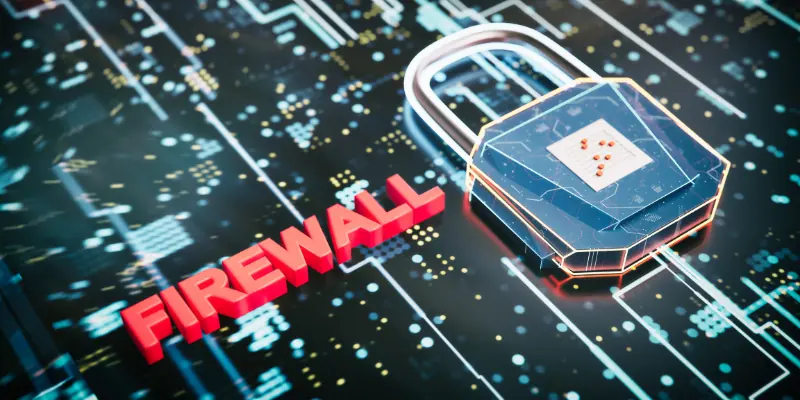Advantages of Computer in Cybersecurity for Protection and Security
Published: 14 Feb 2025
How can you be sure that your personal data is safe online? With the growing number of cyber threats, it’s easy to feel confused or overwhelmed. However, understanding the Advantages of Computers in cybersecurity can help ease these concerns. Computers are designed to detect and prevent attacks, manage encrypted data, and even learn from new threats. They play a critical role in keeping your information safe in an ever-evolving digital world. The Key advantages of computer in cybersecurity are following:
Faster Threat Detection and Response
Computers are essential in detecting and responding to threats quickly, keeping your system safe. Security systems, like antivirus software, scan for malware, viruses, and other harmful programs as soon as they enter your computer. This helps to limit the damage of a cyberattack before it becomes serious. The software runs in real-time, detecting and removing threats instantly without slowing down your computer’s performance. By catching these threats early, the risk of long-term damage to your data is greatly reduced.
Once a threat is detected, the system acts fast to stop it from spreading. Cybersecurity tools can scan large amounts of data quickly, ensuring your computer stays safe without causing disruptions. Immediate alerts notify users of any detected threats, allowing them to take action when necessary. These tools work automatically, making sure your computer stays secure without the need for manual intervention, and they help maintain your system’s performance while protecting your data.

Automated Systems for Real-Time Monitoring
Automated systems in cybersecurity are always on the lookout for threats, keeping your computer and networks safe at all times. These systems work 24/7, meaning your device is protected even when you’re not actively using it. With automated protection, there’s no need for manual security checks. The system works on its own, detecting threats and taking action instantly. For example, it can block harmful websites or files before they cause any damage.
The system continuously monitors for both known and unknown threats, reacting quickly to any changes. This reduces the need for human involvement in security tasks and helps maintain your computer’s performance without interruptions. If any problem is detected, real-time alerts notify the user immediately. The system can also track and analyze patterns, helping to find new types of threats. Overall, automated cybersecurity ensures your device stays safe, responding quickly without waiting for user input.
Data Encryption for Secure Information Storage
Data encryption is a security method that turns your sensitive information into unreadable code. This ensures that even if someone steals your data, they can’t access or misuse it without the correct decryption key. Encryption is commonly used to protect important details like passwords, credit card numbers, and personal information. It keeps your files and messages safe, whether stored on your device or in the cloud, by making them unreadable to unauthorized users.
Encryption is important for securing online transactions and communication, preventing hackers from using stolen data. It also helps protect against identity theft by making stolen personal information useless. This extra layer of security keeps your communications private and safe from prying eyes. For businesses, encryption is crucial to ensure customer data stays secure, building trust and protecting sensitive information from being exposed. Overall, encryption is a powerful tool that ensures your data stays protected at all times.
Protection Against Viruses, Malware, and Ransomware
Computers use antivirus software to protect your devices from viruses, malware, and ransomware. Antivirus programs scan your system for harmful files and remove them before they can cause damage. Malware is detected and isolated so it can’t spread throughout your computer. Ransomware, a type of malware that locks your files and demands payment, is also blocked by these systems. This protection ensures your files and data stay safe from cybercriminals.
These programs work in the background without interrupting your daily tasks, keeping your computer running smoothly. Regular updates to antivirus software help protect your system from new threats. Antivirus software also prevents malicious programs from stealing your personal or financial information and keeps your computer from getting damaged or slowed down. By stopping cybercriminals from using your computer for illegal activities, antivirus software maintains the safety of your files and ensures your data remains intact and secure.

Firewall Protection to Block Unauthorized Access
Firewalls are an important tool for protecting your computer from unauthorized users. They act as a barrier that filters incoming and outgoing data, blocking suspicious connections. By using a firewall, you can stop hackers and malware from easily accessing your system. It helps secure your computer by only allowing trusted and verified connections, keeping your private data and files safe from cyberattacks. Firewalls can also prevent data breaches by stopping harmful connections before they reach your system.
In addition to blocking harmful traffic, firewalls can be customized to allow or block specific types of connections based on your needs. They protect your home or office network from external threats and can monitor specific programs or applications on your system. Firewalls also prevent attackers from exploiting open ports on your computer, offering an extra layer of security alongside antivirus software. This added protection ensures that your system stays safe from potential dangers.

Network Traffic Analysis to Detect Unusual Behavior
Network traffic analysis is a security tool that helps monitor the flow of data within your system. It tracks data movement and looks for unusual patterns, like unexpected transfers or strange login attempts. If a cyberattack, such as a large data breach or malware communication, is happening, network analysis can alert you immediately. This helps identify threats before they can cause major damage to your system, providing an early warning for quick action.
By analyzing network patterns, this system can spot abnormal activities and detect when sensitive data is being accessed or stolen. It helps reduce the chances of undetected cyberattacks by allowing you to block malicious activity before it spreads. Network traffic analysis can monitor both internal and external communications for suspicious behavior, improving your overall network security. It also provides a clearer view of who is accessing your network and where they are connecting from, helping to protect your system more effectively.
Backups and Disaster Recovery Options
Backups are important for protecting your data from being lost during disasters like cyberattacks, system crashes, or human mistakes. With regular backups, your files are always safe, even if something goes wrong. Backups can be stored both locally on your device and in the cloud, offering extra protection. In case of a crash or attack, you can easily recover your important files like photos, documents, and financial records. Automated backups can be scheduled to run without needing any effort from you, ensuring your data stays protected at all times.
For businesses, backups help keep operations running smoothly without the risk of losing key data. They reduce downtime by allowing you to restore files quickly. Backups also provide peace of mind, knowing that if something goes wrong, your important files can be recovered safely. Overall, having regular backups ensures your data is secure and available when you need it, even in the worst-case scenario.

AI-Powered Threat Detection and Prevention
AI-powered systems are designed to learn from past cyberattacks and adapt to new threats. By recognizing unusual patterns or behavior, AI can detect new types of malware that traditional methods might miss. Over time, as AI analyzes more data, it becomes smarter and more effective at protecting your data from evolving cyber risks. AI also predicts future threats by learning from previous attacks, helping to prevent problems before they become serious.
These systems offer proactive defense by stopping attacks early and adjusting security settings to respond to new risks. AI also helps identify weaknesses in your system and automatically fixes them, making threat detection faster and more accurate. Because AI can detect threats more quickly than traditional methods, it keeps your system one step ahead of hackers. By recognizing potential attack strategies early, AI ensures your system is constantly protected from emerging dangers.

Cost-Effective Security Tools for Businesses and Individuals
Cybersecurity doesn’t always have to be expensive. Many affordable security tools provide excellent protection for individuals and small businesses alike. Whether you’re securing your personal computer or protecting a business network, cost-effective tools can keep your data safe without high costs. Many of these tools are free or low-cost, offering protection against viruses, malware, and hackers. For small businesses, there are budget-friendly options that can grow with your needs.
Affordable cybersecurity tools include antivirus programs, firewalls, and VPNs, which help safeguard your devices. These tools often come with regular updates and maintenance to keep your system secure. By using cost-effective tools, you can prevent expensive data breaches and maintain high-quality protection without a large budget. These affordable options can protect all types of devices, including phones and tablets, ensuring security for everyone, regardless of their financial situation. This makes it easy for anyone to maintain good cybersecurity without breaking the bank.
Reduced Human Error in Security Management
Humans can sometimes make mistakes, like forgetting to update software or clicking on harmful links. Computers help reduce these errors by automating many security tasks, ensuring your system is always protected. Automation takes care of important tasks like software updates and virus scans regularly, so you don’t have to worry about missing something crucial. Automated systems also send alerts and notifications to remind you of important security actions, keeping you on track.
By handling routine security tasks automatically, these systems minimize the chances of human error and make your computer more secure overall. They can prevent you from accidentally opening malicious emails or links, making cybersecurity more reliable. With automation, security runs in the background, allowing you to focus on other tasks. It also ensures that critical actions like data backups are done on time, keeping your system safe even if you forget to manually perform security tasks.
Cybersecurity refers to protecting systems, networks, and data from cyber threats like hacking or viruses. It’s important because, without proper protection, our personal information, finances, and online activities are at risk. Computers play a key role in making sure this protection is in place.
Computers use specialized software to scan for malicious programs and unusual activity. These tools can quickly identify viruses, malware, or unauthorized access attempts. By catching threats early, computers can prevent damage before it happens.
While computers provide strong protection, no system is completely foolproof. Computers can block most threats automatically, but it’s important to stay aware and follow basic safety practices. Regular software updates and good habits are essential to staying secure.
Data encryption is the process of converting your information into a code that only authorized users can read. This keeps hackers from accessing your private data, even if they manage to break into your system. Computers use encryption to secure sensitive information like passwords and bank details.
You can tell if your cybersecurity system is working by checking for regular updates and scans. Antivirus software should be active, and your firewall should be enabled. If you haven’t received any alerts or warnings, your system is likely running smoothly.
Yes, antivirus software is crucial for detecting and preventing viruses, malware, and other harmful programs. It scans files and websites in real time to keep your computer safe. Without it, you could be more vulnerable to cyber threats.
Public Wi-Fi networks can be risky, as they are easier for hackers to access. It’s best to use a virtual private network (VPN) when connecting to public Wi-Fi, as it encrypts your data. Avoid logging into sensitive accounts or making purchases while on public Wi-Fi.
Yes, many of the same cybersecurity tools that protect computers can also be used on smartphones and tablets. Antivirus apps, secure networks, and data encryption help keep your mobile devices safe from threats. Always keep your devices updated for the best protection.
A firewall monitors and blocks incoming and outgoing network traffic, while antivirus software scans for and removes harmful programs from your computer. Both work together to protect your computer from cyber threats, but they serve different roles in security.
To improve your computer’s security, install antivirus software, enable your firewall, and update your system regularly. Use strong passwords, avoid suspicious links, and back up your important files. These simple steps can make a big difference in protecting your data.
Conclusion
So guys, in this article, we’ve covered Advantages of Computers in Cybersecurity in detail. With the rise of online threats, it’s crucial to stay ahead by using the technology available to us. From preventing data breaches to detecting malware in real time, computers are key to ensuring safety. I recommend using a reliable antivirus and regularly backing up your data to keep your digital life secure. Take a few simple steps today to enhance your security and stay protected from online dangers!

- Be Respectful
- Stay Relevant
- Stay Positive
- True Feedback
- Encourage Discussion
- Avoid Spamming
- No Fake News
- Don't Copy-Paste
- No Personal Attacks

- Be Respectful
- Stay Relevant
- Stay Positive
- True Feedback
- Encourage Discussion
- Avoid Spamming
- No Fake News
- Don't Copy-Paste
- No Personal Attacks
